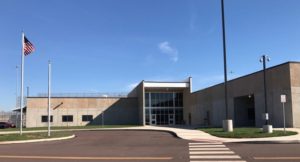
Though State Correctional Institution-Phoenix in Montgomery County has no synagogue, a small, resolute group of Jewish men in the prison still gather and pray.
In past years, before the pandemic, the men incarcerated across the prison’s east and west sides gathered weekly in the smallest of the prison’s multipurpose faith rooms for Shabbat services and an oneg afterward.
There are now 12 Jewish men incarcerated in SCI-Phoenix. Though the exact number of incarcerated Jews there has fluctuated over the years, it has usually been around the size of a minyan.
According to Frank Jordan, who is incarcerated at SCI-Phoenix, serving a life sentence on homicide charges, many of these men have been friends for decades after spending so many years on the inside together. One inmate has been incarcerated since 1963.
They are joined by a dozen or so others: men interested in Judaism who want to learn more. Though he believes most have pure intentions, Jordan claims that — much like on the outside — some just come to services for the food that follows.
For Rosh Hashanah and Yom Kippur, the men would unstack chairs and drag them into a circle, where a volunteer chaplain would lead them in prayer and discussion. They would roll their mobile Torah ark out of the closet and closer to the circle, where it would become the service’s focal point.
Afterward, the havurah would share a meal together, one of two festive meals the prison provides. Though the prison would distribute the meals, a couple of men from the prison’s east side volunteered to cook some Ashkenazi favorites: roasted chicken, potato kugel, (an albeit watery) matzah ball soup. If they were fortunate, the food would come from the outside; the taste of a brisket from several years back still lingers in Jordan’s memory.
Last year, however, the meal, the services and the spiritual impact of the holiday were different. And it will be different this year, too.
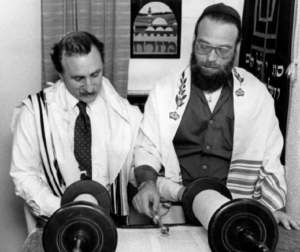
Instead of gathering in the makeshift chapel, the Jewish men stayed in their cells, watching services from Central Synagogue in New York broadcast on closed-circuit televisions. They received a dressed-down festive meal, complete with eight ounces of a “calcium fluoride beverage,” which doesn’t hold a (Shabbat) candle to beloved Kedem grape juice.
Because the social component of the holidays is so important to the inmates, the isolation of last year’s tamped-down holiday observations was devastating.
“It’s heart-wrenching that we can’t at least gather with our crew,” Jordan said. “For them to not allow us to come together once a week or for our High Holidays is ridiculous.”
According to Jordan, the general population of SCI-Phoenix is mostly vaccinated. Still, at this point, Rabbi David Bauer, the part-time prison chaplain at SCI-Phoenix, said that due to concerns over the delta variant, the east and west sides of the prison won’t come together for services this year. Just as last year, the men will likely observe the holidays from their cells.
“The level of fear around any multiple-person event turning into a superspreader event just completely put the kibosh on any of our more ambitious plans of gathering people together,” Bauer said.
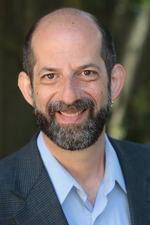
Beyond the disappointment of another year of separation from friends (in addition to family members on the outside), the loss of Jewish community over the High Holidays is counter to what these holidays require from Jews who observe.
For those on the outside, the process of teshuvah, or repentance and transformation, takes place in community with others. In addition to being able to apologize to those one has hurt, an individual also needs encouragement to work up the courage to confront someone, write a letter to someone they’ve hurt and provide emotional support, Bauer said. On the inside, that process can’t happen.
“Many of the essential components that make the traditional Jewish process of teshuvah successful are not available to people who are incarcerated this year,” Bauer said.
In the Jewish tradition, having the opportunity to apologize to whom you’ve hurt is a large part of teshuvah. Though some victims may not be interested in getting an apology, to deny a perpetrator the ability to offer one to a victim open to it undermines the process of repentance.
“If you are taken out of the community and put in a prison that’s far away from the community in which the event happens … you are completely cut off from the world in which that crime was allowed to be committed,” said Rabbi Elyse Wechterman, a volunteer chaplain at SCI-Phoenix and the executive director of the Reconstructionist Rabbinical Association.
Though teshuvah is inherently a communal activity, the process of repentance is individualized.
“It’s a very personal process for everybody that would be made easier if we were meeting regularly in community,” Bauer said.
Others may support an individual who is repenting, yet everyone is on their own path. Wechterman believes this is the same for everyone, incarcerated or not.
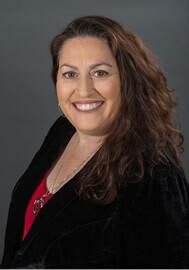
According to Matt Engler, who was in prison for 21 years on home invasion charges, men on the inside talked about repentance all the time, though it wasn’t an exclusively Jewish topic of conversation. Oftentimes, it didn’t feel productive.
“Quit torturing yourself,” Engler said. “You have to find a way to forgive yourself.”
Engler was put off by a lot of conversations around repentance. He dislikes the connotation the word has around redemption.
“It didn’t serve me,” Engler said. “It’s just kind of dwelling ‘what was’.”
While in prison, Engler began meditating and started a yoga practice; on the outside, he teaches yoga and meditation classes at The Twisted Monkey in Rockledge.
Meditating helped Engler see his life more clearly and move forward. In prison he meditated for at least an hour and a half every day. He said he wouldn’t be the person he is now had he not picked up the practice.
“That steadiness gives you this foundational rock,” Engler said.
Though he doesn’t assign the words of “repentance” and “redemption” to his story, he said he’s different after his time on the inside, and often has moments when he looks at his life now and is at peace.
“I have these moments all the time when I’m like, ‘I did it,’” Engler said. And he said he’s still moving forward and a better man than he was before.
“We can never undo the past; the past is the past,” Wechterman said. “What we have to do is integrate it and live with it and grow beyond it. And I do believe that growing beyond it is redemption.”
This is part one of a two-part article.
[email protected]; 215-832-0741





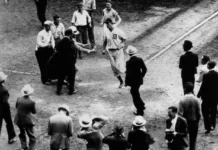

Thank you for this informative article.